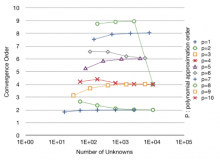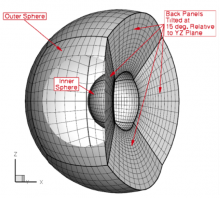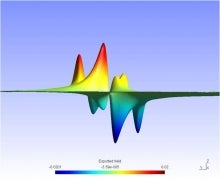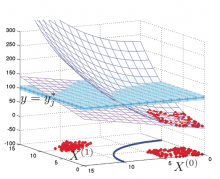Contact Info
Department of Applied Mathematics
University of Waterloo
Waterloo, Ontario
Canada N2L 3G1
Phone: 519-888-4567, ext. 32700
Fax: 519-746-4319
PDF files require Adobe Acrobat Reader
In the past decade, large-scale computing has become a prevalent means of discovery and of 'getting things done' in almost all areas of research and technology. The research area of Numerical Analysis and Scientific Computing is playing a central role in this evolution, developing numerical methods for advanced simulation in a variety of fields which include the physical sciences, engineering, the life sciences, and information technology.
Traditional areas of strength in Scientific Computing research in the department include numerical methods for PDEs and numerical linear algebra. Research is also conducted in other areas of Scientific Computing, such as numerical methods for ODEs, inverse problems and numerical optimization. Research in Scientific Computing involves a variety of methods and techniques, ranging from the development and mathematical analysis of numerical algorithms to advanced implementations on parallel supercomputers and GPUs. There are frequent research interactions and joint graduate courses in the Scientific Computing field with Waterloo's School of Computer Science, Department of Combinatorics and Optimization, and Centre for Computational Mathematics. Large-scale computing infrastructure is provided by SHARCNET and Compute Canada.
The regular faculty whose primary research area is Scientific Computing are:





Contact Info
Department of Applied Mathematics
University of Waterloo
Waterloo, Ontario
Canada N2L 3G1
Phone: 519-888-4567, ext. 32700
Fax: 519-746-4319
PDF files require Adobe Acrobat Reader
The University of Waterloo acknowledges that much of our work takes place on the traditional territory of the Neutral, Anishinaabeg and Haudenosaunee peoples. Our main campus is situated on the Haldimand Tract, the land granted to the Six Nations that includes six miles on each side of the Grand River. Our active work toward reconciliation takes place across our campuses through research, learning, teaching, and community building, and is co-ordinated within the Office of Indigenous Relations.